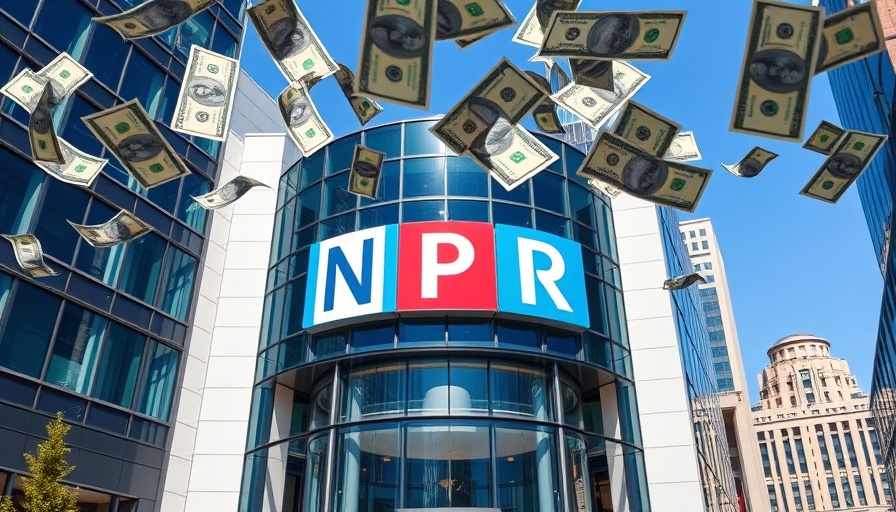
NPR at the Crossroads: A Response to Funding Threats
In a bold move reflective of the current political climate, NPR has urged its member stations to actively lobby Congress. This comes in direct response to the Trump administration's attempts to withdraw federal funding.
This call to action isn’t just about preserving federal dollars; it’s about protecting public broadcasting as a pillar of democratic discourse. Federal funding, which constitutes a significant portion of many public stations' budgets, supports programming that educates and informs the public.
The Stakes for Public Broadcasting
For many viewers, NPR is a vital source of news articles and updates on national issues. The withdrawal of federal funding could drastically impact the quality and diversity of news coverage. As stations brace for potential funding cuts, they are increasingly aware that their independence and ability to provide impartial, in-depth reporting are at stake.
Consequently, NPR's lead in lobbying efforts serves a dual purpose: to secure funds and to galvanize grassroots support among listeners. Encouraging audience engagement with Congress increases awareness of the essential role public media plays in their communities.
Historical Context: Funding Cuts Through the Years
The threat of defunding public broadcasting is not new. Past administrations, in moments of political dissent, have pushed similar agendas. For example, during budget discussions in the 1990s and again during the 2010s, public broadcasting faced scrutiny. Historians note that these funding battles typically exhibit a pattern where the arts and education face the first cuts during periods of economic strain, leading to a vicious cycle of reduced program quality and outreach.
Real Impact: A Shared Concern Across the Public
The implications of these funding cuts extend beyond NPR's walls. A multitude of local news outlets also depends on federal support to remain viable. Public radio and television stations provide not only national news but also local stories that resonate with communities.
When NPR’s offerings are at risk, so too are stories that might highlight key local figures, unique cultural narratives, or vital community issues, such as health and education. This localism characterizes public radio, making it indispensable for local engagement.
Counterarguments: The Debate Over Public Funding
Opponents of federal funding often argue that public broadcasting should not rely on taxpayer money and that it could be sustained through private funding and sponsorships. This perspective prompts an essential discussion about the future of news in the United States.
Critics question whether public media can uphold its commitment to quality and independence without government funding. The reality is that commercial models tend to prioritize sensationalism and ratings over substantive journalism, raising concerns about journalistic integrity.
Future Insights: A Shift in Media Consumption
As digital news consumption continues to grow, public broadcasters face the challenge of adapting to the evolving landscape. For NPR, engaging audiences means not only fighting for funding but also updating its delivery methods to attract younger listeners who rely on podcasts and streaming services.
If this funding battle ignites greater public interest and participation, we may see a renaissance in community-driven journalism. Public broadcasting’s adaptability in times of change can offer hope for a media landscape that values accuracy and trustworthiness.
Conclusion: The Time to Act is Now
As NPR calls on its stations to lobby for continued federal funding, this represents a critical moment for public broadcasting. The narrative surrounding public media exemplifies the larger discussions we are having about the future of democracy and informed citizenry in America today.
As readers, staying informed and involved is more important than ever. Consider reaching out to your representatives to express your support for public broadcasting—ensuring that this vital resource remains alive and thriving for generations to come.
 Add Element
Add Element  Add Row
Add Row 



 Add Row
Add Row  Add
Add 


Write A Comment